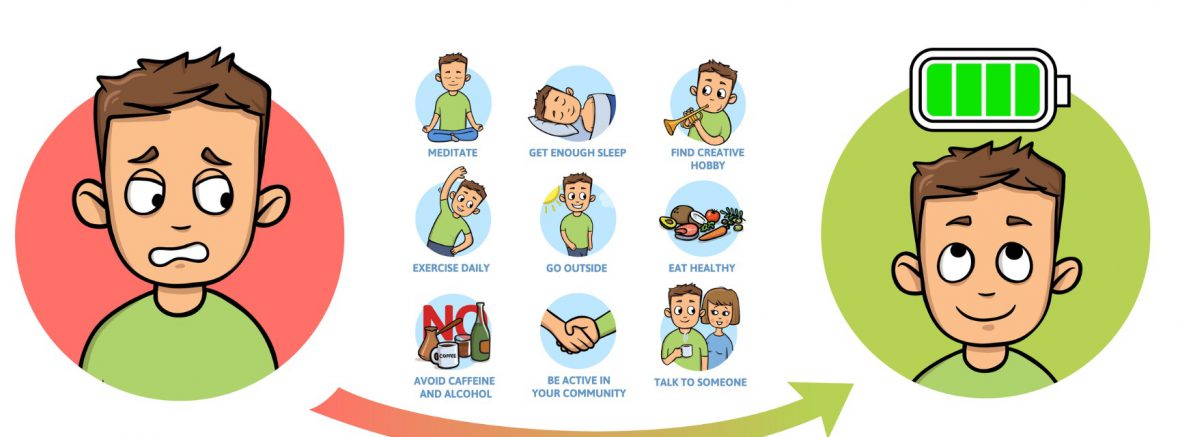Are overweight people happy people? Not necessarily. In fact, there is an insidious and multi-factorial correlation between obesity and depression.
The fat and jolly myth continues to show up in memes and jokes and expectations for who will play Saint Nick in the annual holiday play. So, let’s look at the truth, and what causes the connection between obesity and depression.
The myth: Fat people are happy people
Almost every persistent myth contains a sliver of truth in the middle of the misperceptions and misinformation. The fat and jolly myth is no exception. So, here’s the thing: restriction-based dieting often provokes moodiness because of the resultant hunger and unstable blood sugar levels. When people who are otherwise well, but are slightly overweight, they may be miserable on a diet and happier when they are “fat”. But this reality does not apply with those who are medically obese. The truth about depression and obesity is quite otherwise.
The truth: Correlation between obesity and depression
Does depression lead to weight gain, or does obesity trigger depression? No one really knows.
Depression and obesity often happen together and can become a viciously reinforcing cycle. The currently most-accepted theory is that depression most often leads to obesity because of the tendency to self-medicate with food especially carbohydrate rich foods (ice cream, anyone?). However, the reality is a more complex than that.
When a person is obese, their entire body is inflamed, sometimes obviously, but most often at a cellular level that isn’t apparent on the outside. Fat cells release hormones that promote chronic inflammation. And chronic inflammation is linked to depression as well as a host of other mental health diagnoses.
Both depression and obesity are dogged by persistent stigma, and that doesn’t help anyone in their recovery journey.
The serotonin connection
Serotonin is a neurotransmitter that is important for mood regulation, appetite, sleep, energy, and sexual desire. When serotonin levels are awry, it is no surprise that multiple areas of life are affected. Serotonin dysregulation can lead to comfort eating, lack of motivation for exercise and normal activity, difficulty sleeping, and difficulty with relationships. All of these contribute to eating more and exercising less. Not surprisingly, that leads to weight gain.
Poor sleep
When you aren’t sleeping enough, your brain tends to mistake the sleepiness and fatigue for hunger, and you will think you are hungry when you are tired. Or, you may deliberately use sugar, with or without caffeine, to stay awake and to increase energy levels.
This works in the short term, but in the longer term, these coping strategies lead to less energy and more difficulty with sleeping.
Comfort eating
Eating foods that are high in sugar and/or fat causes a quick, although temporary, spike in serotonin and other feel-good neurotransmitters. Consciously or unconsciously, this leads to comfort eating and unintended weight gain. Bingeing on an entire tub of chocolate chip mint ice cream, pigging out on a large cream soda and extra-large tub of popcorn at the movie theater, having a beer or four in the evening, eating a candy bar for a pick-me-up… Comfort eating takes many forms and is a prime contributor to unintended weight gain.
Low energy/ fatigue
Both depression and obesity, independently, can cause low energy and fatigue. No matter where the cycle starts, the consequent lack of regular activity, exercise, and motivation can be a contributing factor for more weight gain and worsening depression.
Antidepressants
Antidepressants alter serotonin levels and interfere with the normal production and processing. Serotonin is important in mood, as well as appetite and impulse control. In some cases, antidepressant medication appears to cause abnormal appetite and unwanted weight gain. However, some of this may be because normal appetite returns as serotonin production normalizes, but the person may not be as physically active as they used to be or may have a slower metabolism.
Bottom line: be aware of the potential effects on appetite and weight gain and consider talking to a therapist or coach who can help you develop an action plan to build healthier habits. If the medication side effects are unacceptable, talk to your doctor about switching to a different drug or a lower dose, while you work on developing life skills and doing the emotional/soul work that will allow you to be depression-free without drugs. (This may not be possible for everybody, but most people are able to eventually experience relatively normal emotions without drug therapy. It’s worth working toward this goal.)
Treatment options
Discovering the connection between obesity and depression can actually be a relief. No longer do I have to try to hide the depression or pretend that being fat doesn’t have anything to do with it. And knowing about the connection expands the repertoire of treatment options I have.
Many of the lifestyle changes and habits that are helpful for depression are also helpful for obesity.
Exercise improves mood and helps control appetite. If going to the gym looks overwhelming, try increasing your NEAT (Non-Exercise Activity Time). Walk around the block. Park farther from the door. Take a child to a park. Take the steps down (and up, if possible and feasible).
Cut the sugar and decrease inflammation, improve mood, and lose weight. Caveat: Don’t substitute fake sugar for the real thing, because the chemicals mess with neurotransmitter and hormone function, and can be detrimental for both mood and weight control.
Eat real food, not highly processed substitutes. Baked potatoes instead of French fries. A filet instead of a fish sandwich. An apple, not a flavored juice product. Real foods contain micronutrients that are key for optimal brain and cellular function, and therefore for weight control and positive mood.


